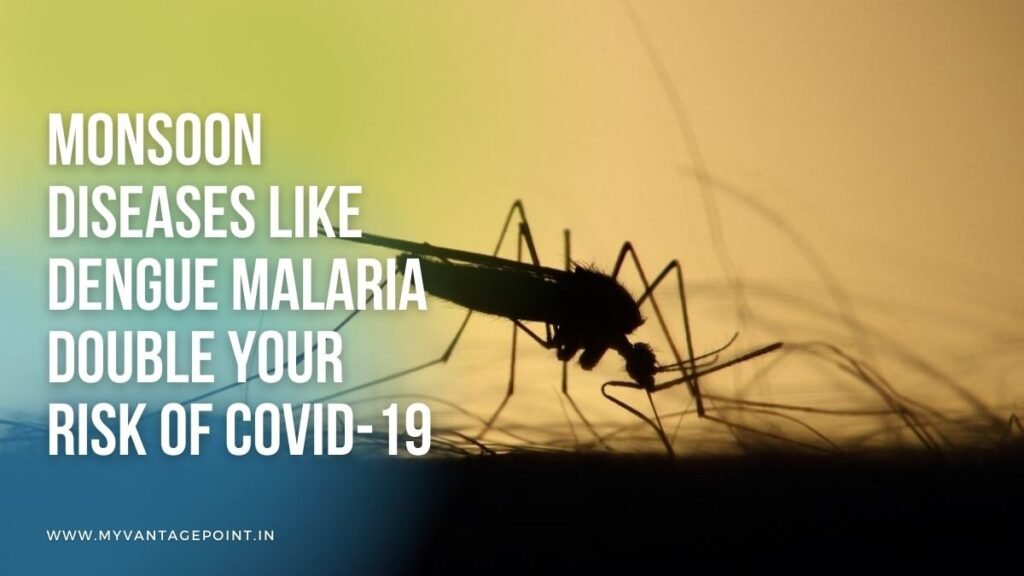Mumbai: As we continue to sail through the Covid-19 pandemic, monsoon has increased the risk of transmission of tropical, vector-borne diseases like dengue malaria. Many symptoms of malaria, dengue, and Covid-19 tend to overlap each other owing to which the treatment can be difficult.

Preventing simultaneous infection of Covid-19 and malaria or/and dengue is the need of the hour. Follow Covid-19 protocol and maintain good personal hygiene to avert the chances of infections.
The country is already facing challenges owing to the pandemic. Now, owing to the monsoon there is a steep rise in the cases of vector-borne diseases such as malaria, dengue, and chikungunya. Even fungal, food, and water-borne diseases and other skin infections are giving a tough time to people.
Dr. Sharat Kolke Senior Physician, Kohinoor Hospital Said,
Every year during Monsoon we see a spike in cases of Malaria, Leptospirosis, Jaundice in city. These diseases have smililar symptoms like fever, diarrhea, Vomitting, headache and joint pain that to an increased movement of people and sudden change in climate. However, additional symptoms like cough, loss of smell or taste, or sore throat may aid in the diagnosis for Covid-19. Preventing co-infection will allow in segregating and treating Covid patients accurately while reducing chances of wrong treatment that can lead to higher morbidity or mortality rates.
To keep dengue and malaria at bay, the mosquito breeding spots must be identified and removed. Make sure that there is a proper system for the water to flow as it should not get stagnated. Wear full-sleeved clothes and use mosquito repellent and nets to avoid mosquito bites, and fogging is recommended. All spots inside and outside the house like pots, fish tanks, water containers, old types, coconet stells which can accommodate water should be avoided, highlighted Dr. Kolke, Kohinoor Hospital
Dr Vikrant Shah, consulting physician, intensivist and infection disease specialist, Zen Multispeciality Hospital Chembur said,
“Currently we are seeing increasing cases of Dengue and malaria. Last two weeks there is rise in cases of Dengue and malaria. We also had one patient who was diagnosed with Leptospirosis. People should consult the doctor if their fever does not subside within 2-3 days ,if it is associated with chills ,myelgia ,rash ,headache. They should be more cautious .These symptoms could be because of malaria ,dengue .Children and the elderly should be given immediate attention .Also in Monsoon fever with vomiting and loose stools ,and yellow discolouration of eyes can point towards Jaundice ,Acute Gastroenteritis .Take medication as prescribed by the doctor and not opt for any home remedies.”
“To prevent gastrointestinal infections, follow the good hand-hygiene practice, drinking only boiled water, avoid eating stale or raw or contaminated food or drinking juices from outside. Reheat the food kept in the refrigerator and don’t eat food kept in open. Don’t eat undercooked food to prevent disorders like gastroenteritis and jaundice. Do not wade through flood water, get vaccinated, don’t touch objects that may be contaminated with animal urine, and proper disposal of garbage should be done to keep rodents away that cause leptospirosis,” concluded Dr. Shah.



